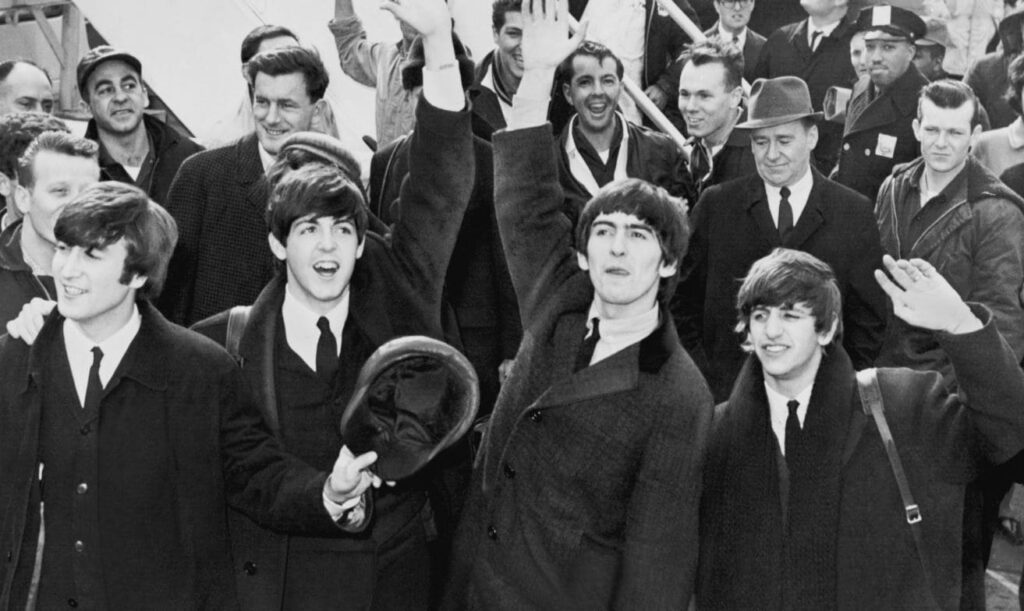Introduction
The British Invasion in the 1960s influenced the social, political, and cultural lives of people in the United States (US) and many other countries across the world. The Beatles was one of the most recognized British bands, and people coined the term Beatlemania to refer to the impact it had on people. Some other infamous bands of the time include the Rolling Stones and the Kinks. British Invasion bands had a cultural impact in that they influenced the fashion and behaviors of the youth, encouraged protest music and new ideologies, and enhanced multiculturalism.
A Change in Fashion and Behaviors of Young Individuals
British Invasion had a cultural impact, considering the changes it caused among American teens in their fashion and household space. As a result of the influence of British music, American youth started to adopt hairstyles, accents, and hip fashions that were associated with people in the United Kingdom (Grammy Museum 2020, para. 9). Fans exhibited new hairstyles and dress codes by emulating the artists. In this case, many young men in the US started to grow long hair. Moreover, the change in culture was evident in the household as many fans decorated their bedrooms with pictures and posters of British artists and bands (Grammy Museum 2020, para. 10). Unlike the generation before them, many teens in the 1960s had separate bedrooms and used to keep objects that signified pop culture and music of the British bands. Therefore, the culture of people in the US and other parts of the globe changed in diverse ways.

The Rise of Protest Music and a Counterculture
British Invasion had a cultural impact on Black Americans and other minority groups, leading to the birth of protest music and a counterculture marked by psychedelic music. In particular, the British Invasion encouraged a counterculture that caused people to show more concern over racism, social inequality, and poor governance (Poe et al. 2019, p. 30). Consequently, protest music started, and this aligned with the demands made during the social movements of the 1960s. For example, equally protecting the rights of all people. Additionally, an underground counterculture supporting ideologies, such as flower power, became popular, with people embracing psychedelic music originally started by the Beatles (Poe et al. 2019, p. 32). Therefore, British artists impacted the culture of Americans and the viewpoints, values, or beliefs they developed. The bands led to a new order by making people feel more determined to attain ideological emancipation and ensure equality for all people.
Encouraging Multiculturalism
British Invasion supported multiculturalism through diversity in the bands and by incorporating styles of music from different cultures. Compared to the early 1960s, the mid-1960s had British bands that had a more diverse racial composition (Fuhg 2021, p. 215). British artists encouraged ethnic diversity, an immigrant culture, and cosmopolitanism. For example, they did this by working together with Caribbean musicians. Moreover, some songs were composed by mixing styles from different cultures, including Afro-American music (Fuhg 2021, p. 215). This approach led to new genres and music culture, like Tropicália. Therefore, British Invasion led to cultural diversity in society.
Conclusion
British Invasion caused people to exhibit new styles and behaviors, start protest music that supported new ideologies, and embrace multiculturalism. The youth adopted new hairstyles and fashion, and new genres of music emerged. Through the new music, individuals stood against oppression and encouraged multiculturalism. Therefore, British music in the 1960s significantly impacted the culture of people in other countries.
Reference List
Fuhg, F 2021, ‘London’s working-class youth and the making of Post-Victorian Britain, 1958–1971. Palgrave studies in the history of subcultures and popular music,’ pp. 207–243, viewed 8 July 2023, DOI:10.1007/978-3-030-68968-1_6.
Grammy Museum 2020, ‘Revisit: The British invasion: How 1960s beat groups conquered America’, Grammy Museum. Available from: <https://grammymuseum.org/museum-at-home/revisit-the-british-invasion-how-1960s-beat-groups-conquered-america/ >. [8 July 2023].
Poe, P, Fisher, M, Brandon, S, Hutchins, D & Goodman, M 2019, ‘Music of the 1960s: The praxis of ideological change,’ Journal of Social Change, vol. 11, no. 1, pp. 30–37, viewed 8 July 2023, DOI:10.5590/josc.2019.11.1.03.


